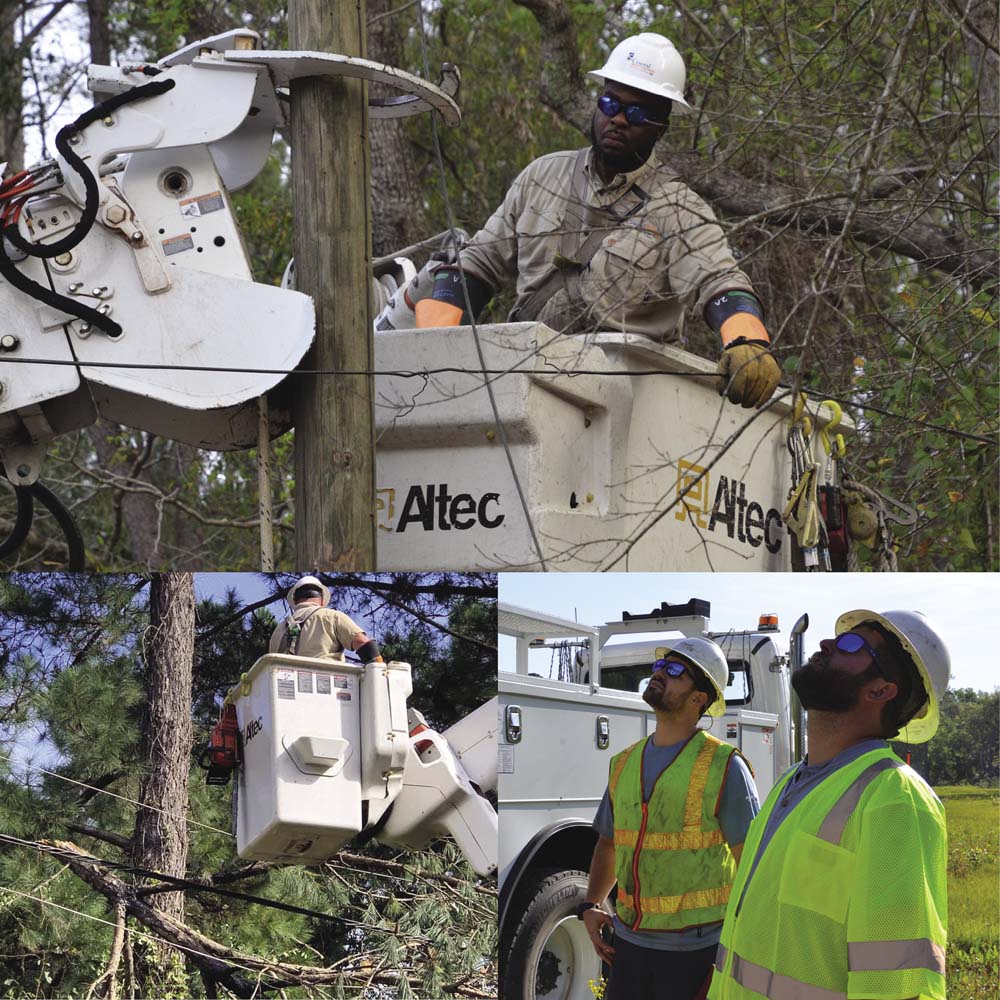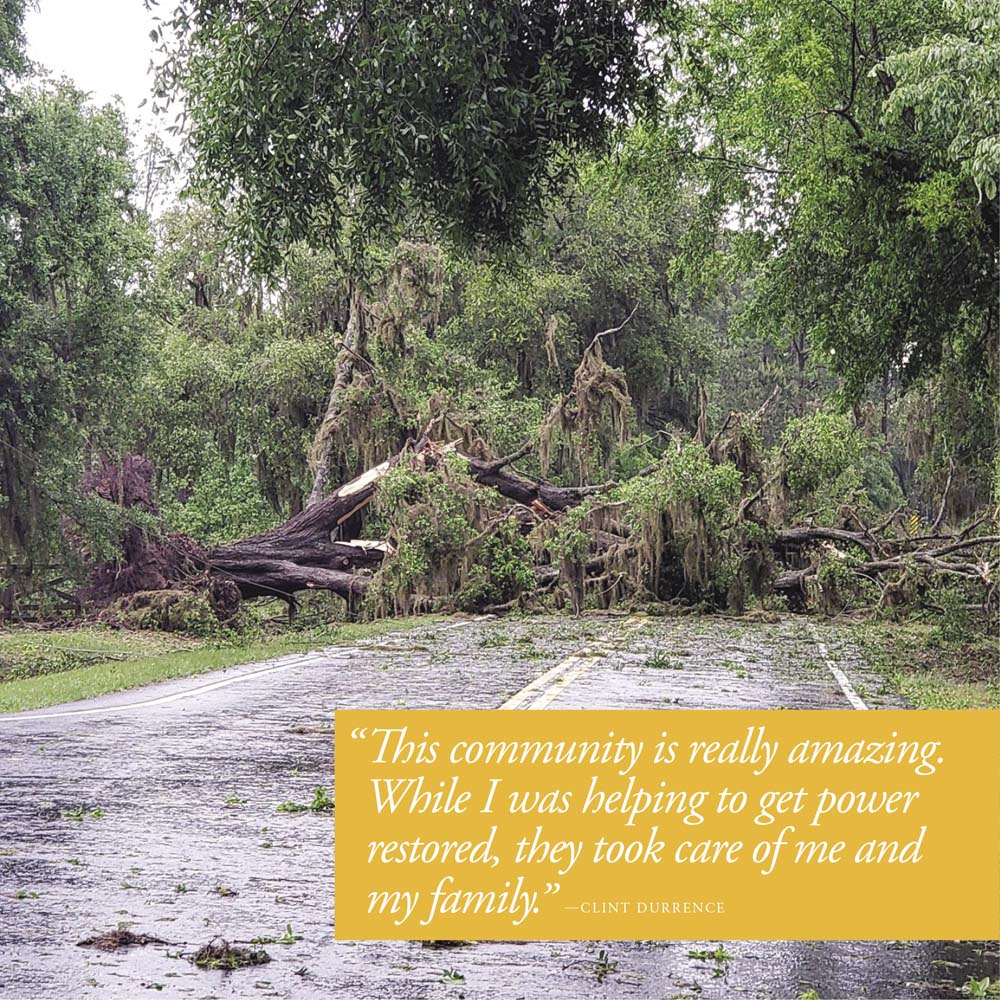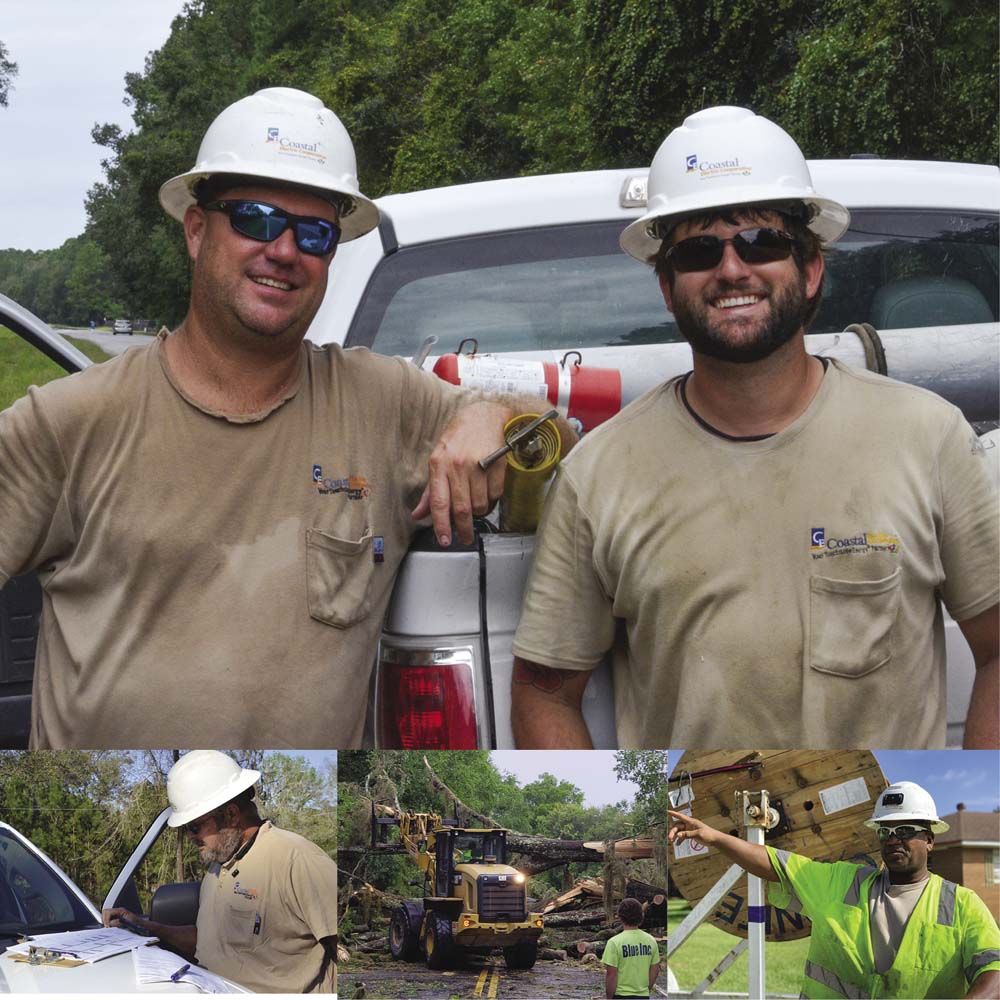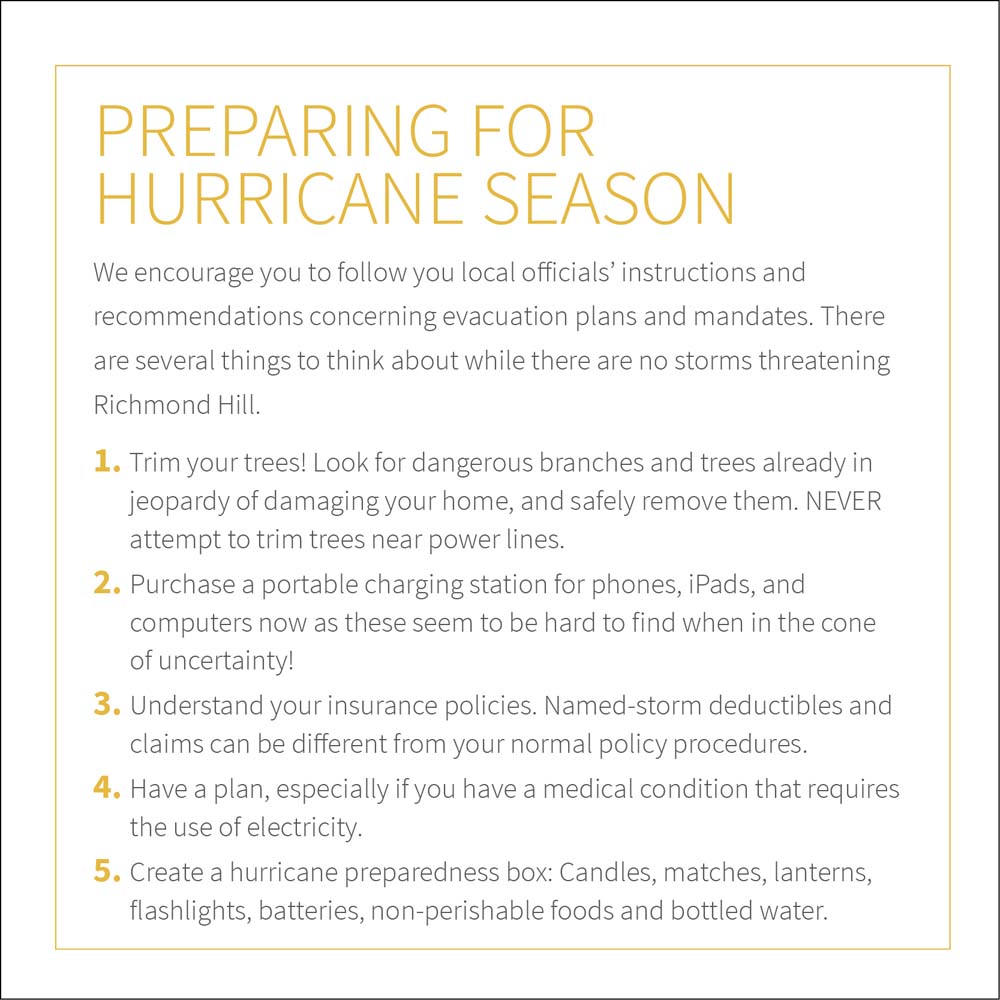
Energy
Farm to Table
WORDS AND PHOTOS BY Cheryl Pangborn Photos Courtesy of Coastal Electric Co-op

How often do you think about what it takes to keep the power running without interruption?
Coming from a family of linemen, I’ve seen first hand how much work, sacrifice, planning, and danger is involved in keeping our power on. My brother-in-law was a retired lineman supervisor when he passed earlier this year. His job was intense, especially in South Florida where we used to reside and experience ravaging hurricanes, often. I couldn’t help but think of him while writing about Coastal Electric Cooperative’s approach to serving power to Richmond Hill.
When we moved to south Georgia we were told there hadn’t been a hurricane in this area since 1984. Enter the Pangborn’s from Broward County, and it seems that fact promptly changed. Hurricane Matthew would batter our little town only a few months after we moved to Richmond Hill in 2016. Preparing for the storm, I began having flashbacks to 2005 when Hurricane Wilma blazed a path through Florida and we were without power for almost three weeks. Naturally, with Matthew, we were bracing for the worst. We were shocked when our power was restored within 24 hours. If you live in South Bryan County, most of us have our friends at Coastal Electric Cooperative to thank for this anomaly.

Bethany Akridge, the communications coordinator for Coastal Electric, explains to me what it means to be a part of an electric co-op. “We were actually founded back in 1940 when some locals got together to bring electricity to their community. Fast forward to today, if you get your electricity from us, you are not just a customer, but a member and an owner of the cooperative. There are no investors looking to make a profit. As a member, you vote for a board of directors and best of all, if the financial margins are strong, you may even find yourself receiving a refund.”
Coastal Electric has a 65-person workforce including their 20 dedicated linemen. They currently service most of South Bryan County, as well as Liberty and Macintosh Counties. While there are seasoned linemen who have come with years of experience, there are also many others who had no experience at all when they joined the team. Bethany says, “While we support and encourage college education, we also want to support technical education as well, so we train and school our new hires right here at the co-op with on-the-job
supervision.
“These guys are not just climbing poles and trimming trees off power lines,” James Thomas, Director of Training and Safety adds. “They have to watch out for poisonous snakes and spiders, be aware of impending heat stroke and generally be prepared for just about anything when they’re on the job.”

When I asked about the wildly fast restoration times, not just in the height of a named storm, but on the daily basis, Bethany’s answer to the question was in the form of an analogy. “We are the original farm-to-table electric company,” she says. “Basically, our crews know their territories well, and since they’re not being pulled all over Georgia, their focus is on you.” She also explains that their system is engineered strong and during an outage, power can be redirected to a specific community to get the lights on quickly. Then, the crews can go out later and take their time repairing the problem, and the customer is happy because they are out of the dark and the heat!
19-year veteran employee, Clint Durrence, has gone from a lineman’s position to a line supervisor, working through many storms all over the country, including the 2020 Category 4 Hurricane Laura in Louisiana. While reminiscing Hurricane Matthew in 2016 with me, Clint recalls that he and a few other linemen stayed together at his house waiting for the storm to approach, eventually moving over to the Coastal Electric headquarters in Richmond Hill, so they could be ready to head out as soon as the storm passed by. “Some of it is a mental game, just being prepared for the unknown and keeping people safe–that takes a lot out of you. And then there’s the physical work.” Clint was able to get back to check on his own house just briefly and was shocked to find downed trees all over his property. Of course, he couldn’t stop to focus on that, and he returned to work. I saw that time and again with my brother-in-law. He could be gone for days before having time to assess his own situation. These guys put themselves behind those they serve. A few days later, when Clint was able to get home again for some much needed sleep, he was overwhelmed to see his neighbors had cleared all the trees. “This community is really amazing. While I was helping to get power restored, they took care of me and my family.”

I put the team on the spot and asked what their average turnaround time is for power restoration in any situation. There was a little hesitation making such a bold claim, but Vice President Mark Bolton put it well. “If you follow our Facebook posts, you’ll find that most of our outages are restored in one hour, sometimes faster. I believe it’s those quick return times that have earned Coastal the reputation of being always on.” He proudly adds that following Matthew, a few communities never even lost power, and says that during the last two storms, more than half of their customers were restored within 24 hours. For this Florida girl, that is impressive information–because going three weeks without power is not for the faint at heart!
As the Atlantic waters warm and the seas become more active this summer, the team at Coastal Electric Cooperative will be training and preparing for any and all possibilities of power interruption. And it’s not just hurricanes to worry about, afternoon thunderstorms and windy squalls are lining up and often put the linemen to work. Let us remember to be thankful for their hard and dangerous work that allows us to be cool and safe inside our homes.
















